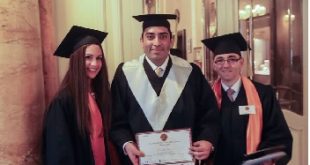BENGALURU / July 21, 2025: Egg freezing is still a relatively new practice in India, but is steadily gaining popularity, especially in metro cities like Mumbai, Delhi, Bengaluru, and Hyderabad. Women are embracing egg freezing as an empowered choice which gives them more control over their reproductive timelines. Biological reality also remains a key driver, with many women seeing it as a safeguard against age-related fertility decline. This was said by Dr. Vidya V Bhat, Medical Director, Radhakrishna Multispeciality Hospital & IVF Center in Bengaluru, ahead of the World IVF Day.
Egg freezing is the process of retrieving a woman’s eggs, freezing them using a technique called vitrification, and storing them for future use. This allows women to delay motherhood while preserving their fertility. Said Dr. Vidya V Bhat, a well-known Obstetrician, Gynaecologist, Laproscopic surgeon and IVF Specialist: “Over the last five years, we have seen 20-25% rise in women inquiring about or opting for elective egg freezing. In our practice alone, consultations for elective egg freezing have nearly doubled over the same period. We have observed that women who freeze their eggs do so purely by choice, not due to any immediate medical necessity. The primary reasons include focusing on career growth, delayed marriage, or waiting to meet the right partner.”
Talking about the ideal age for a woman to freeze her eggs, Dr. Vidya V Bhat said: “Ideally, we recommend women consider egg freezing in their late 20s to early 30s, as both the quantity and quality of eggs are significantly better at this age. Freezing eggs before 35 gives the highest chance of successful pregnancy later. After 35, egg quality begins to decline rapidly, and while freezing is still possible, it may not yield the same outcomes. Not all frozen eggs survive the thawing process, and even if they do, fertilization and implantation aren’t guaranteed. So, while technology has improved dramatically, it’s not an absolute insurance policy. It is a probability enhancer.”
She added: “If eggs were frozen before 35, the chance of achieving a live birth later can be around 40-60% per cycle when using frozen eggs. In India, leading IVF centers report survival rates of over 90%, with fertilization and embryo development also quite encouraging. However, cumulative success might still require more than one cycle, so patients should be prepared for that possibility.”
Said Dr. Vidya V Bhat: “We are seeing a shift in how egg freezing is perceived in society. Earlier it was surrounded by stigma about why a woman isn’t settling down or misconceptions that it is only for women who are unable to find a partner. Today, especially in cities, many families and husbands are more supportive in viewing egg freezing as a responsible step. However, there is still a sense of discomfort about it and the idea persists that fertility conservation is unnatural. But with more awareness, these perceptions are slowly changing.”
She added: “The biggest myth is that egg freezing guarantees a baby later. Women must realize that it’s not a 100% insurance policy. It simply improves your chances. It’s a wonderful option but not a foolproof promise. The earlier women explore egg freezing, the more choices they have medically, emotionally and financially. They should think of it as taking control, not postponing motherhood indefinitely to sometime in future.”
Egg freezing is still perceived as a premium procedure in India, mostly undertaken by women with stable careers. Growing awareness is pushing more women to at least explore consultations early, even if they do not opt for egg freezing immediately. As technology becomes more mainstream, costs will come down further, making it an option for more and more women, Dr. Vidya Bhat said.
 Newspatrolling.com News cum Content Syndication Portal Online
Newspatrolling.com News cum Content Syndication Portal Online






